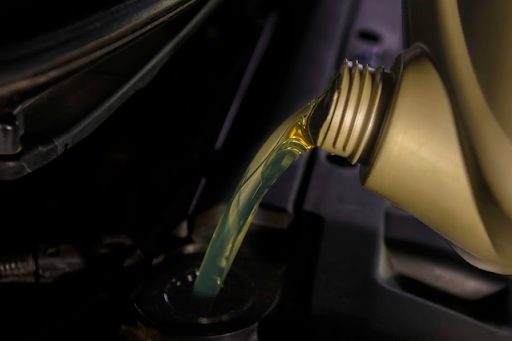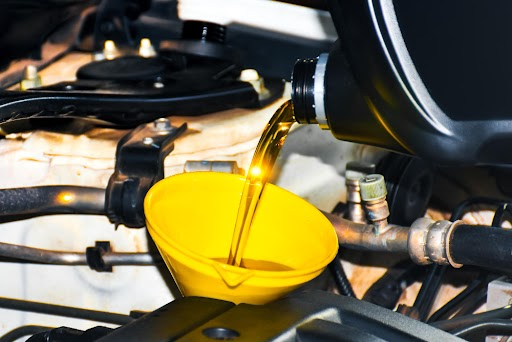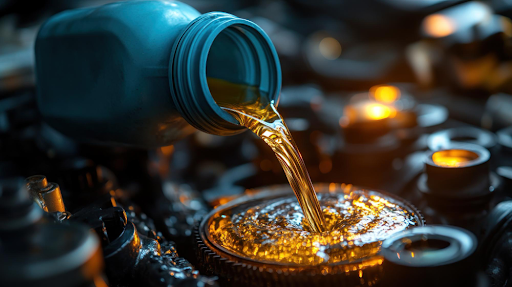Diesel engines in commercial vehicles have to operate under heavy loads and harsh conditions. The engine oil is responsible for keeping the engine in good condition by lubricating, reducing wear, and controlling temperature. However, this becomes problematic when fuel mixes with the oil, compromising its efficiency. This issue, collectively known as fuel dilution, can cause significant harm to the engine if not addressed.
What is Fuel Dilution?
Fuel dilution occurs when excess diesel fuel escapes due to incomplete combustion and enters the crankcase of the engine, mixing with the oil. This can be caused by poor combustion, worn-out injectors, frequent short trips that don’t allow the engine to reach its optimal temperature, or extended idling. Even a small amount of fuel in the oil compromises its lubricating qualities.
When diesel engine oil is diluted, its viscosity decreases. The oil becomes thinner and loses its ability to form a protective coating on moving engine components. This leads to increased friction, greater wear, and potential damage to engine parts like pistons, bearings, and cylinder walls.
Why Fuel Dilution is Bad
Fuel dilution not only impacts the viscosity of the oil, but it also affects the additives designed to protect the engine. Over time, diluted oil can lead to:
- Increased Wear and Tear:
Thin oil cannot maintain adequate lubrication under heavy loads, causing increased metal-to-metal contact and accelerating wear on engine parts. - Higher Oil Consumption:
Diluted oil burns faster, resulting in oil loss. This can lead to overheating and additional damage if not addressed. - Sludge and Deposits:
Fuel in the oil accelerates sludge and varnish formation within the engine, impeding oil flow and diminishing overall performance. - Reduced Engine Life:
If left untreated, fuel dilution can cause engine failures and necessitate expensive repairs or overhauling.
Signs of Fuel Dilution
Identifying the early signs of fuel dilution can help prevent extensive damage. Common symptoms include:
- Apparent increase in oil levels (due to gaseous fuel mixing with oil)
- Thin oil consistency during oil inspection
- Pungent smell of fuel on the dipstick
- Reduced fuel economy and performance
Regular oil analysis can help detect fuel in the oil. This is especially important for commercial vehicles with long operating hours and extensive daily distance coverage.
Role of Diesel Engine Oil in Preventing Dilution
High-quality diesel engine oil is designed to cope with challenging conditions. Oils such as CI4 15W40 are formulated with sophisticated additives that offer better thermal stability, excellent film strength, and resistance to breakdown. Even with minimal fuel dilution, these oils provide protection for a longer duration than standard oils.
However, no oil can completely offset extreme dilution. It’s essential to complement premium engine oil with routine maintenance habits.
How to Avoid Fuel Dilution
Preventing fuel dilution is all about combining good driving habits with regular vehicle maintenance. Here are some tips to minimize the risk:
- Clean Fuel Injectors
Faulty or leaking injectors are one of the primary causes of fuel dilution. Regular checks and timely replacement can keep fuel from entering the oil. - Avoid Excessive Idling
Extended idling prevents the engine from reaching the ideal combustion temperature. Reducing idle time can help minimize fuel buildup in the crankcase. - On-Time Oil Changes
Regular oil changes as per the recommended intervals are vital. Using premium oil like CI4 15W40 ensures consistent protection, even under harsh conditions. - Check Oil Levels and Condition
Regularly inspect the oil using a dipstick to identify changes in texture, odor, or level – common signs of fuel dilution.
Why It Matters for Commercial Vehicles
Commercial fleets such as buses, milk vans, and trucks operate under high-stress conditions. They require robust, long-lasting lubrication to move heavy loads over long distances. Fuel dilution reduces the oil’s ability to perform under these demands, resulting in increased wear and frequent breakdowns. Using high-quality diesel engine oil designed for these conditions is not just a choice; it’s a necessity.
Final Thoughts
Fuel dilution is a silent danger to engine health, but it can be controlled with the right oil and good maintenance practices. Top-quality diesel engine oil like CI4 15W40
It is specifically formulated to provide long-lasting performance, even under the tough conditions faced by commercial trucks. Tata Motors Genuine Oil offers cutting-edge engine oils designed for trucks, buses, ambulances, and other heavy-duty vehicles, ensuring long-lasting protection and optimal performance.






